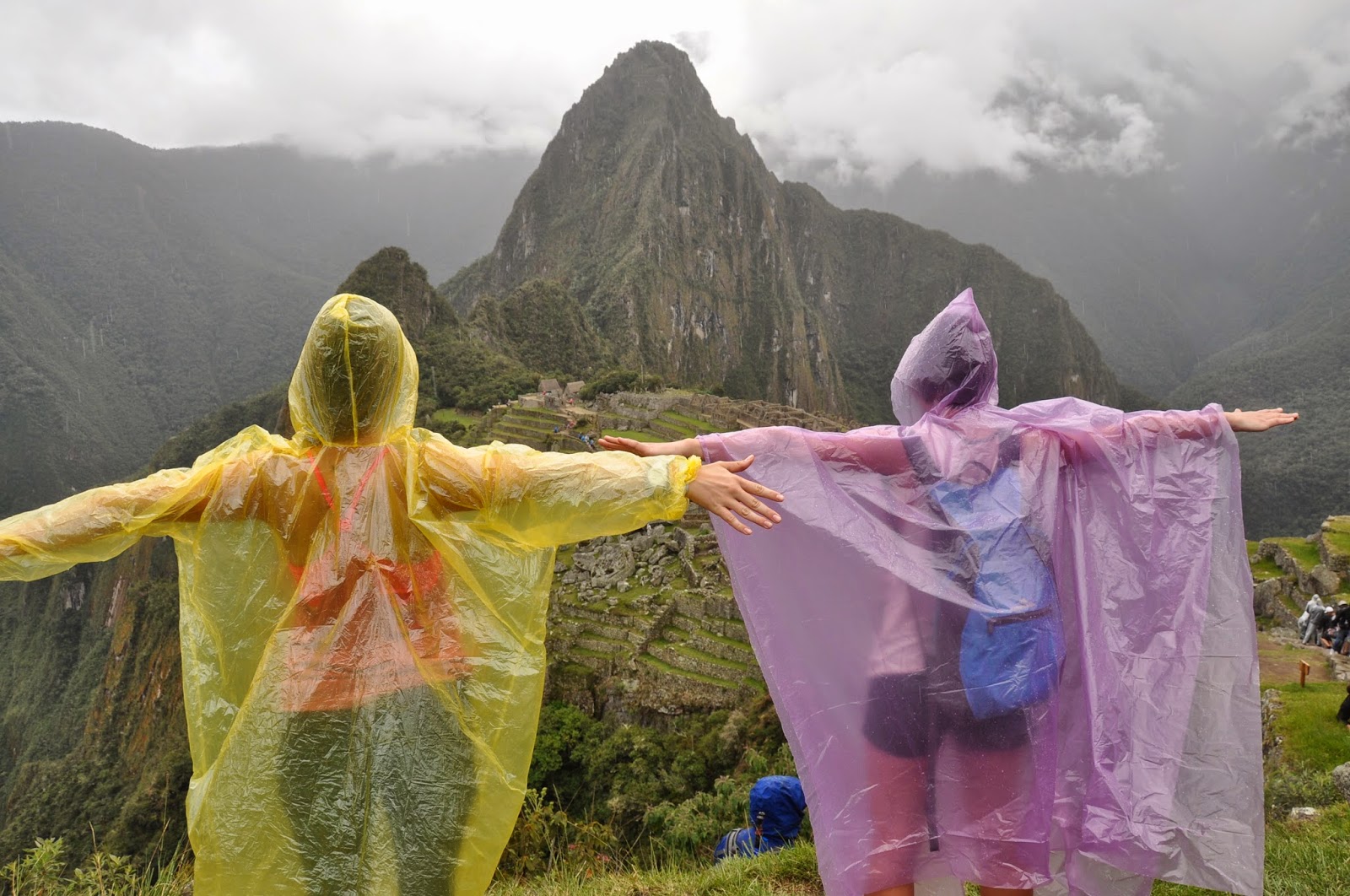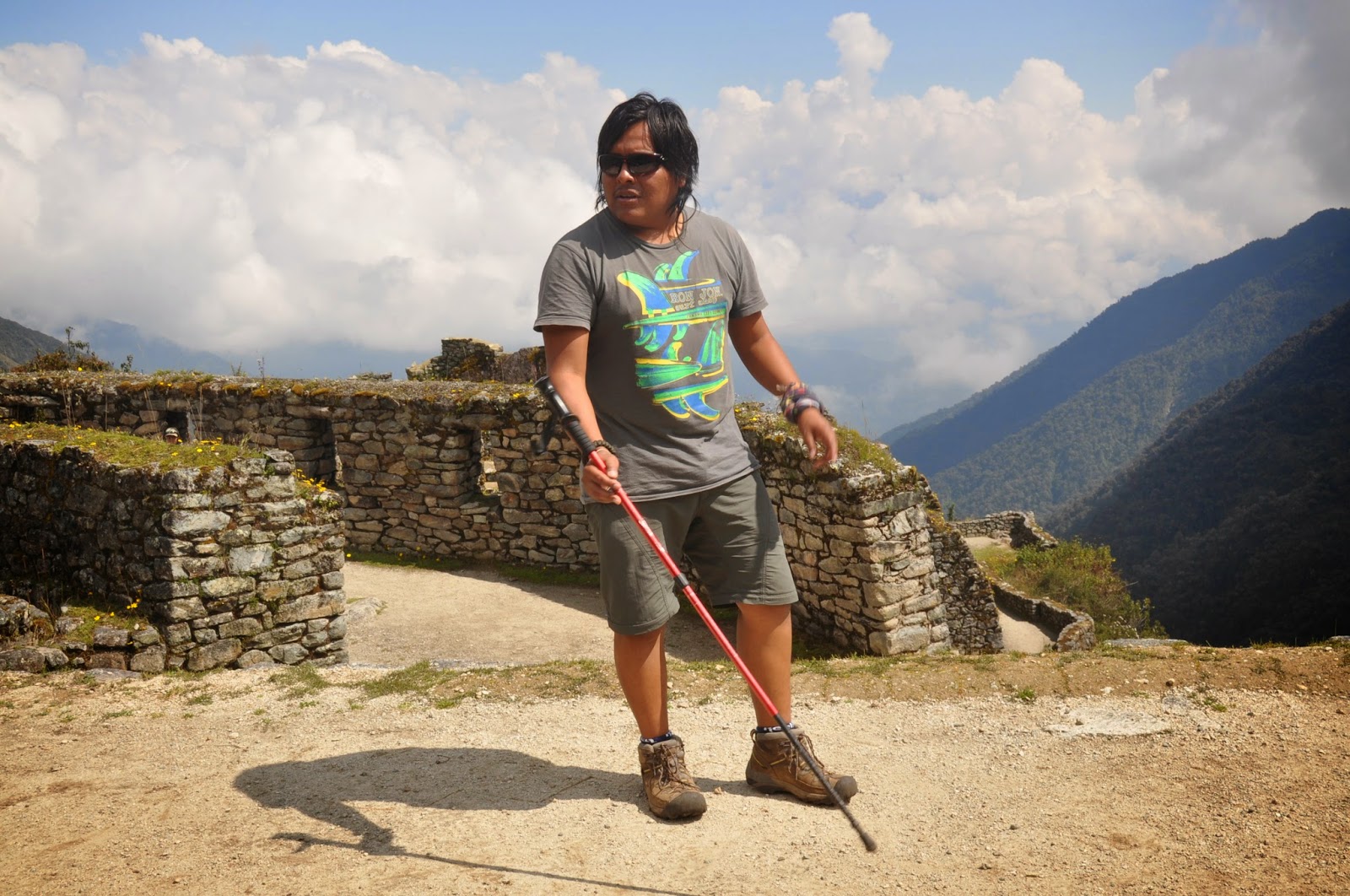 |
| Time to say "goodbye" to Peru! |
Being that this was our third border crossing in the past
two and a half months, we thought we knew the drill. We exited the bus and got
in the front of the line at a currency exchange office to change 50 soles into
bolivianos. We learned in Ecuador the hard way that you don’t want to be stuck
in the “nowhereness” that is land near borders without the local currency.
After getting a small wad of bolivianos – which look
strikingly similar to Monopoly money – we power-walked to the police checkpoint
to have our immigration cards stamped, then went next door to the Peruvian
migration office where we handed them our immigration cards and got our exit
stamp. We were ahead of most of the others in the bus, and everything was
looking good.
Now the thing about Bolivia is that historically, they don’t
really like Americans – and for valid reasons. In order to understand the rest
of my story, I’m going to give a little background information. Back in the 60’s and 70's during America’s “War on Drugs”,
the government funded the eradication of many coca plantations.
Many Bolivians earned their livings and supported their
families by growing coca – a plant that when it’s processed is a staple
ingredient in cocaine. Regardless of your stance on the drug, the United States
did take away the source of livelihood of many people. Ironically, much of the
demand for this cocaine came from America, but I’m not going to get into the
politics of it.
So, as you may imagine, some Bolivians (not all or even the
majority) dislike people from the United States. There is even a fee specifically for Americans to enter the country of Bolivia. At a hefty $135 per person (plus a $25 exit tax), it isn't surprising that Ben and I were
the only Americans on our gigantic double-decker bus.
The rest of the passengers formed a line and were able to
get their passport stamped, without any charge of course, and head back to the
bus.
Ben and I skipped the queue as the bus attendant
had directed us. Some people waiting in the long line gave us dirty looks as if
we were cutting, but we had to go to a separate counter and the process for us
took much longer. For one thing, we had to fill out a visa “application”, and then we
had to fork over $140 crisp US dollar bills (they don’t accept creased bills,
credit cards or any currency other than US dollars). So why did we have to pay
$140 when the fee is only $135? Well, the Peruvian ATM we drew the dollars from
only had twenty dollar bills, and conveniently
for them, the Bolivian immigration office does not keep change.
So after obtaining our visa – which really is just a small
sticker – and a stamp on top of that, we thought we were in the clear. I asked
the man whom we had paid if we were done, and he gave a simple nod of his head
and returned to his cell phone. Just to be sure, we showed the bus attendant
our passports and asked if we were done. He started shaking his head and
yelling at us in Spanish. He grabbed my elbow and brought us to the front of
the line where the rest of the people on the bus were waiting for stamps. He
motioned for us to cut in front of everyone, still shaking his head.
“Americans!” he
said loudly to the rest of the line, rolling his eyes.
Sorry we didn't know
to cut in front of everyone to get our stamp.
And that was our welcome to Bolivia. From then on, we vowed
we would tell everyone we were from Canada.
Spoiler Alert: That
was really the only experience in Bolivia where we encountered prejudice toward
Americans. Most other Bolivians were very friendly and didn't seem to care that
we were from the United States. Our plan to pose as Canadians didn't come to
fruition, after all.
 |
| And "hello" to beautiful Bolivia! |













































































































